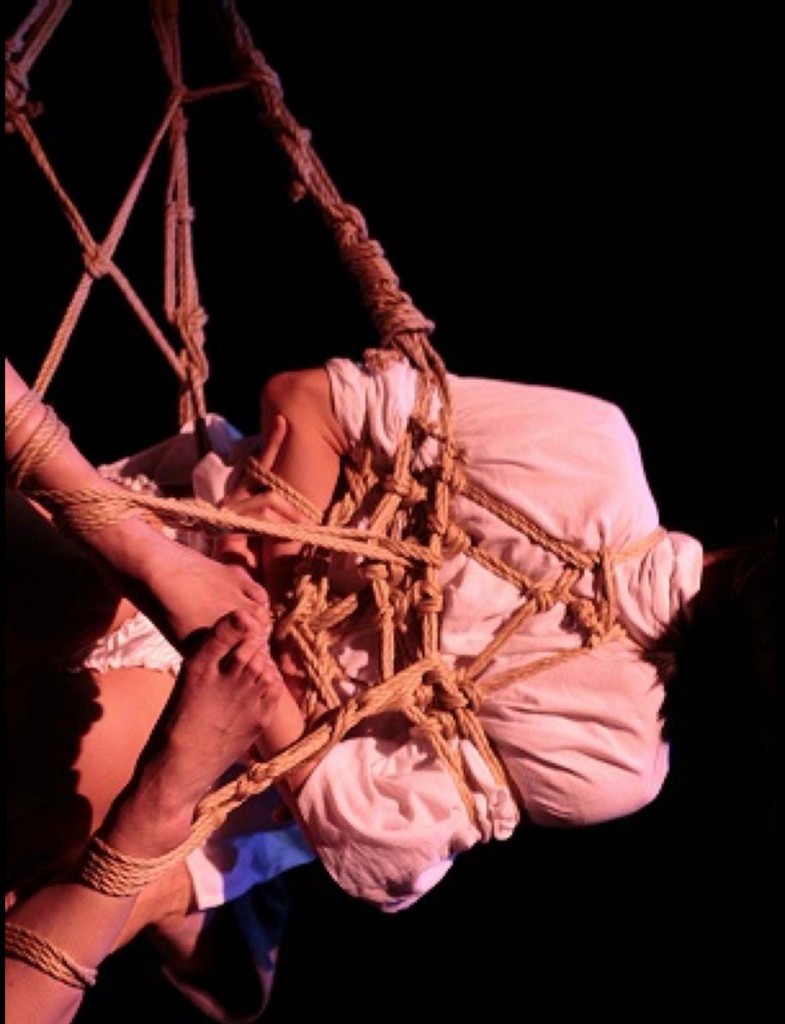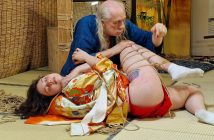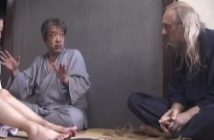If Japanese were easy, the whole world would be speaking it.
Osada Steve
Tsuri (吊り) means suspension. With a prefix such as yoko (sideways, 横) or sakasa (inverted, 逆さ) the tsuri is pronounced as zuri; like yokozuri or sakasazuri respectively. In both cases the actual kanji for tsuri and zuri is one and the same; only the reading/pronunciation differs.
Repeat: there is no such thing as yoko tsuri or you-name-it-prefix tsuri. The pronunciation will always be zuri.
Suffice to say that the Japanese language is holding in store plenty more such “tricky” occasions and “pitfalls”. The following examples have been cherry picked with permission from “Japanese in 15 Seconds”.
Kashira (頭, head) but nawagashira (縄頭, the “head” of the folded rope in shibari; usually referred to as bight)
Shiri (尻, ass), but nawajiri (縄尻, the knotted ends of the rope in shibari. Caution: Depending on context it could also mean the “working end” of the rope — though I would reserve this for situations where the actual “work” is over and the kazari starts; read: when the rest of the rope is relatively short)
Kuchi (口, entrance, mouth, pie hole), but deguchi (出口, exit)
Kusuri (薬, medicine), but nurigusuri (塗り薬, medical cream)
Ke (毛, hair), but matsuge (まつ毛, eyelash)
Ha (歯, teeth), but ireba (入れ歯, denture)
Hon (本, book), but sanbon (三本, three round-shaped objects such as trees, pencils, or bottles)
Hon (本, book), but roppon (六本, six round-shaped objects such as trees, pencils, or bottles)
Sara (皿, dish), but haizara (灰皿, ashtray)
Hi (日, day), but kinyoubi (金曜日, Friday)
Nifun (二分, two minutes), but sanpun (三分, three minutes)
Ofuro (お風呂, hot bath at home), but rotenburo (露天風呂, hot spring bath under open sky)
Tsuri (suspension, 吊り), but yokozuri (横吊り, sideway suspension)
Hishi (菱, diamond), but nijubishi (二重菱, special hojojutsu term to mean either having a diamond/hishi pattern in the front as well as in the back or having two hishi either in the front or in the back)
Taisetsu (大切, precious), but daijoubu (大丈夫, all right)
If this sort of word game turns you on, visit Japanese In 15 Seconds.





2 Comments
Thank you dear sensei for helping us trying to understand these type of language issues 🙂
Thank you Sensei for this short glossary.